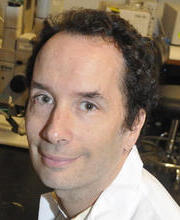Dr. Malcolm R. Whitman

Malcolm Whitman received his undergraduate degree in Biology from Yale College and his PhD from the Biochemistry and Molecular Biology Department at Harvard University. His thesis work in the lab of Lew Cantley investigated the association of phosphatidylinositol kinases with oncogene and growth factor receptor tyrosine kinases, and culminated in the discovery of the phosphatidylinositol-3-kinase signal transduction pathway. In his postdoctoral work with Doug Melton, he developed the frog embryo as a tool for studying mechanisms of growth factor signaling during early development.
As an independent investigator, Dr. Whitman has focused on signals that control tissue specification and remodeling in normal embryogenesis and disease pathogenesis. In exploring the role of TGFß ligand in early embryonic specification, the Whitman lab identified the first Smad-interacting transcription factor, FAST-1, and established that FAST-1 has a central role in the regulation of early developmental patterning by TGFß ligands. More recent work in the lab has established the mechanism of action of the small molecule Halofuginone as a therapeutic for the treatment of pathological tissue remodeling associated with chronic inflammation and fibrosis. The discovery of the first secreted tyrosine kinase, VLK, in the lab has established a new mechanism for the regulation of matrix remodeling that is a major area of interest in the lab. While the experimental approach of the lab is to understand basic molecular mechanisms that regulate tissue remodeling, Dr. Whitman is also actively involved in the application of this understanding of molecular mechanisms to the development of new approaches to the treatment of diseases, including autoimmune disease, fibrosis, and arthritis.
Dr. Whitman is a Professor of Developmental Biology at the Harvard School of Dental Medicine and an affiliate member of the Department of Cell Biology at Harvard Medical School. He is a member of the BBS graduate program, an affiliate of the Harvard Stem Cell Institute, the Dana Farber/Harvard Cancer Center Cancer Cell Biology Program, and a member of the executive committee for the Harvard Developmental and Regenerative Biology program.
